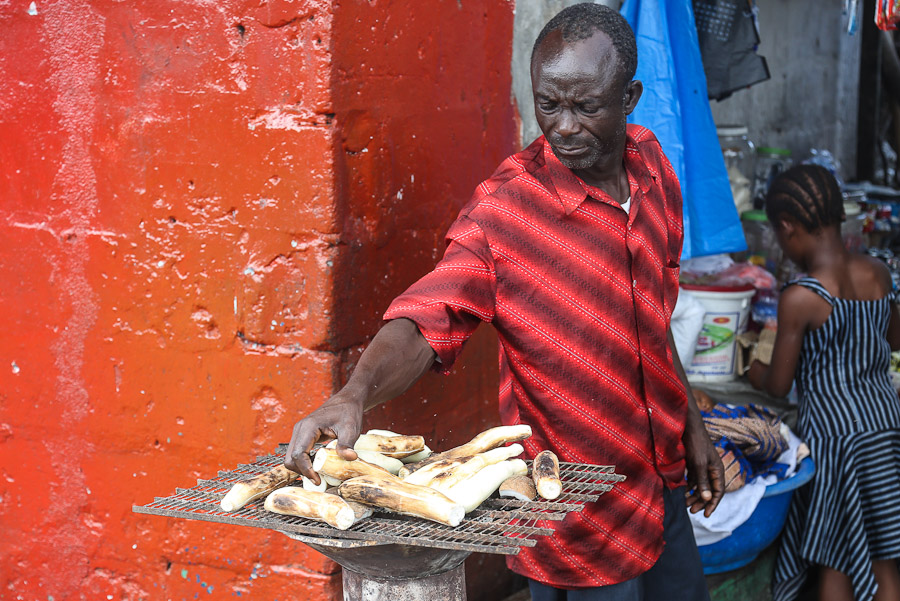Beyond Borders: The Impact of BRAC on Lives in Liberia
 The Bangladesh Rural Advancement Committee (BRAC) is a nongovernmental organization that has been making significant strides in improving the lives of Liberians through its diverse range of programs and initiatives. With a mission to alleviate poverty and empower communities, BRAC has established a strong presence in Liberia, working towards addressing key challenges such as education, health, livelihood support and community development.
The Bangladesh Rural Advancement Committee (BRAC) is a nongovernmental organization that has been making significant strides in improving the lives of Liberians through its diverse range of programs and initiatives. With a mission to alleviate poverty and empower communities, BRAC has established a strong presence in Liberia, working towards addressing key challenges such as education, health, livelihood support and community development.
How Did BRAC Begin?
Founded by Sir Fazle Hasan Abed in 1972, BRAC has grown into one of the largest NGOs in the world. While working as a senior corporate executive at Pakistan Shell Oil, his life changed dramatically when the 1970 cyclone and 1971 Liberation War in Bangladesh unfolded. This prompted him to leave his job and relocate to London, where he played a crucial role in starting Action Bangladesh and HELP Bangladesh to support the war.
Why Is BRAC Helping Liberia?
Liberia is a country that struggles with extreme poverty, with more than half of its population living below the poverty line. The wars that took place until 2003 have left a devastating impact on health care and educational facilities, with buildings being destroyed and equipment being stolen. As a result, most health care workers, university faculty and hospital and medical school administrators decided to flee the country. This has caused a decrease in life expectancy, a significant dropout rate, substandard learning conditions and a lack of qualified teachers.
Sustainable agricultural production in Liberia also often receives insufficient attention regarding policies and programs. Poor investment in this sector has resulted in reduced farmland, mismanagement of water resources and negative impacts on food distribution and production. Pest management practices and technology adoption are also hindered, while fertilizers and modern cultivation methods still need improvement. Additionally, inadequate road networks and high transportation costs decrease food production, further aggravating the situation.
How Is BRAC Helping Liberia?
Established in 2008, BRAC Liberia adopts a community-driven strategy to create tailored and influential initiatives. With a focus on urban, rural and refugee populations, the program’s interventions prioritize the fair involvement of all community groups. It directly engages with communities, ensuring their voices and stories remain at the heart of BRAC’s programs.
Agriculture
Regarding agriculture, the programs conducted by BRAC Liberia focus on training farmers in climate-smart agriculture techniques and poultry and livestock management. These programs provide valuable knowledge and equip farmers with essential resources like seeds, tools, poultry and livestock. Additionally, to ensure ongoing assistance, the organization recruits and trains local leaders who act as community promoters, offering on-site support and helping farmers overcome difficulties.
BRAC Liberia is also committed to improving the adoption of nutrient-rich crops to address child malnutrition in impoverished communities. The organization actively involves lactating, pregnant women and young mothers in nutrition forums and awareness campaigns to achieve this. These initiatives aim to educate them on the significance of breastfeeding, child nutrition, hygiene practices and food safety measures.
Education
BRAC Liberia’s education program is based on a community-led model that aims to foster and maintain high-quality education in Liberia. This approach prioritizes child-centered learning, teacher development and preserving children’s well-being. Teachers are also trained to ensure they have the necessary skills and knowledge to provide an excellent education to their students. In June 2021, a remarkable majority of the 750 participants in UPGI (Ultra-Poor Graduation Initiative) completed their studies, with an impressive graduation rate of 85%.
Health
Regarding health, the organization has developed an integrated network in Liberia consisting of community health promoters and health program personnel. This network aims to provide vital health care services in five crucial domains: reproductive and child health care, Malaria control, Tuberculosis (TB) control, family planning and basic curative services. This network also plays a pivotal role in the emergency response efforts for Ebola and COVID-19.
Microfinance
BRAC Liberia’s main objective is to offer various financial services to individuals at the base of the socioeconomic ladder, with a focus on empowering impoverished women residing in remote rural areas who face significant challenges in accessibility. By providing self-employment prospects and strengthening financial stability, it aims to empower them economically. As of July 2023, $19.9 million was distributed and granted as loans.
Conclusion
BRAC’s work in Liberia encompasses a comprehensive approach that tackles socioeconomic challenges and fosters community development. The organization’s efforts to improve access to education, enhance health care services and empower individuals through entrepreneurship have significantly impacted lives in Liberia. Furthermore, BRAC’s agriculture and community development initiatives have contributed to sustainable livelihoods and empowered local communities.
– Sara Hatab
Photo: Wikimedia Commons
